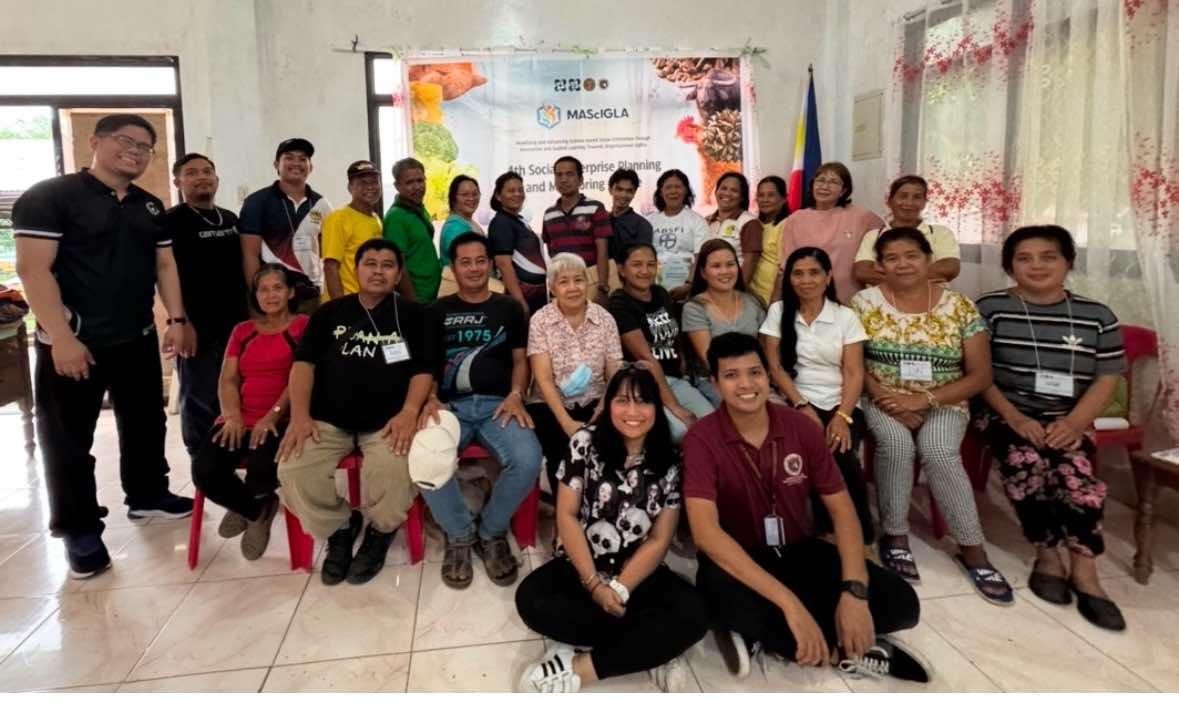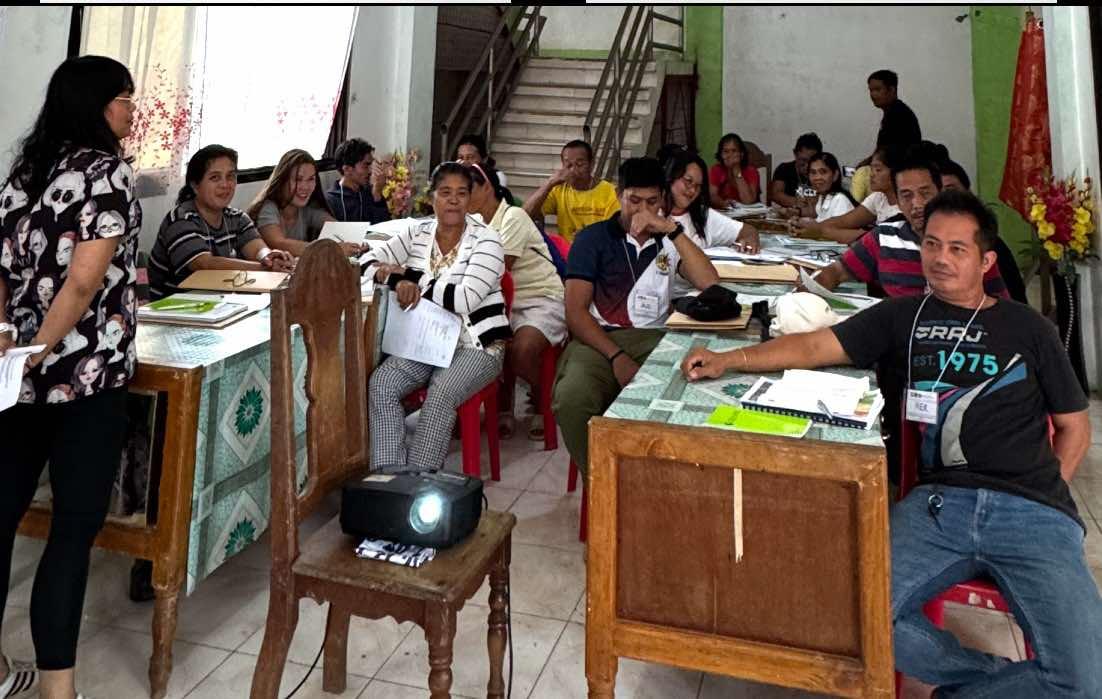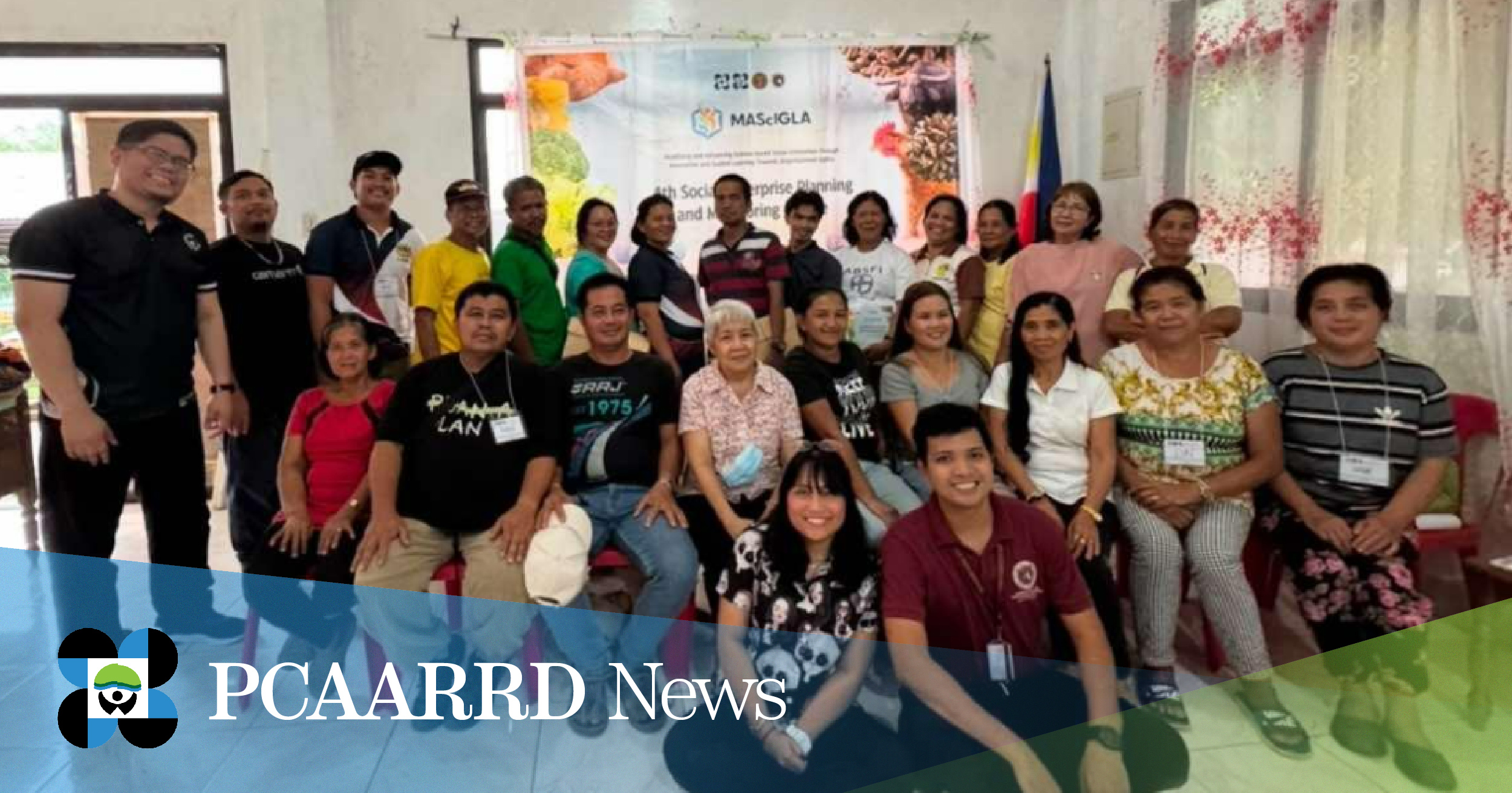
An insightful four-day training workshop on Social Enterprise Planning and Management took place at Hindang Barangay Hall, in Iligan City, on January 28-31, 2025. It brought together 23 bamboo farmer-members of the local association/cooperative as beneficiaries of the completed project, S&T Community-based Bamboo Nursery and Plantation for Pole Production in Iligan City, led by Mindanao State University-Iligan Institute of Technology (MSU-IIT).
This activity was organized by the Project Team of the University of the Philippines–Institute for Small Scale Industries (UP-ISSI) led by Project Leader Ma. Luisa Lee. Resource speakers include Mr. Jeffrey Sumalabe and Ms. Janelle Faye Tanudtanud, both University Extension Specialists, and Joshua Andrei Austria, Project Assistant.
This training is part of the ongoing DOST-PCAARRD-UP-ISSI project, “Mobilizing and Advancing Science-based Social Enterprises through Innovation and Guided Learning Towards Organizational Agility (MaScIGLA).” The project’s primary objective is to expand the extension services provided by DOST-PCAARRD by introducing intervention measures that empower enterprises on agriculture, aquatic, and natural resources (AANR) to evolve into sustainable social enterprises. These enterprises will exemplify the principles of a social mission, social business, social innovation, and social ownership. Additionally, the project aims to improve the Social Enterprise (SE) business planning strategies, performance, and productivity through comprehensive mentoring support.

The activity was graced by Hindang’s Barangay Captain, Mr. Gerardo Baragis and Supervising Science Research Specialist Yolanda M. Tanyag of the Technology Transfer and Promotion Division (TTPD) of DOST-PCAARRD. Ms. Tanyag discussed the significance of the event for the farmer association, explaining that social entrepreneurship is an innovative approach to tackling societal challenges through entrepreneurial principles and strategic business practices.
Unlike traditional entrepreneurship, which primarily focuses on financial gains, social entrepreneurship aims to create a positive impact on communities, the environment, and society while ensuring financial sustainability.
Moreover, entrepreneurship seeks to solve pressing issues such as poverty, education, healthcare, environmental degradation, and inequality. It identifies gaps or inefficiencies in existing systems and develops solutions that can help more people and communities over time.
The training was based on the SE Readiness Level Assessment and the existing needs for a more appropriate and relevant learning opportunity in the context of social entrepreneurship.

The training manual as well as the workbook developed by UP-ISSI includes the following modules:
Module 1. Introduction to Social Entrepreneurship - a) Understanding social enterprises, b) Social entrepreneurial traits and mindset, and c) Planning the social organization/enterprise;
Module 2. Shaping Opportunities/The Marketing Plan - a) Value proposition, b) Target market, c) 4Ps of marketing (product, price, place, and promotion), and d) Sales forecast;
Module 3. Operational plan – a) Farm/production layout; b) Production process flow, and c) Cost of production;
Module 4. Human Resource Plan and Organizational Development - a) Determining organizational structure; b) Identifying the basic human resource policies, c) Defining roles and skills requirements, d) Cost of managing the organization, and e) Organizational development; and
Module 5. Introduction to Financial Management for Cooperatives/Associations - a) Basic record keeping, b) Cash flow management, c) Financial planning and budgeting, d) Financial reports and statements; and e) Fund generation and business model canvas.
This training is a collaborative effort among DOST-PCAARRD, UP-ISSI, and MSU-IIT to provide the farmer association with the necessary skills and knowledge to address societal challenges and contribute to the well-being of their communities.
Workshops and exercises were provided by the project team to the farmer participants to guide them through the process of redefining the association's vision, mission, and goals for a social enterprise. Participants' ideas, experiences, and knowledge were invaluable in strengthening the objectives of the activity.

